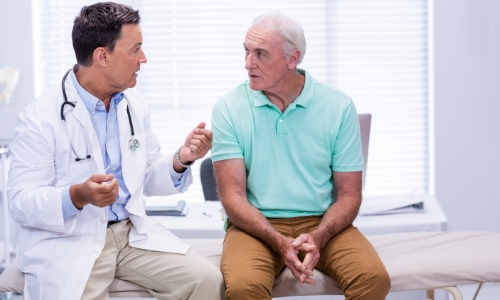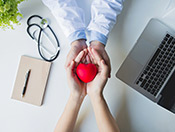Depression
Health Insurance UAE Plans
What is Depression
Depression is a severe mental illness or disorder that negatively affects your daily life activities. Sometimes, it can impact lives so negatively that it can worsen the sufferer’s relationships and leave them feeling secluded.
People who are suffering from this mental illness usually feel sad and angry. It causes a loss of interest in the activities they once enjoyed. It leads them to various emotions while going through various physical and mental problems at the same time. It can also affect and decrease their ability to function at home or at work.
Fortunately, depression is treatable if the correct medication procedure is followed. In this article, we will take you through the forms of depression and their symptoms, causes and cure. You can also check here to see if you can get coverage for depression and other medical illnesses that may or may not occur.
Forms of Depression
Depression is categorised into different forms based on its symptoms and causes. Although depression symptoms have no prominent cause in any patient, they can linger longer than others for no apparent reason. Here are the signs of depression in different categories.
1. Major Depressive Disorder (MDD)
Major depressive disorder is a type of clinical depression that has overwhelming or intense symptoms that interfere with the patient’s everyday life. The depression symptoms for this type usually last longer than two weeks. People suffering from major depressive disorder may experience the following:
- A change from how they used to function
- Loss of interest or pleasure
- Depressed mood
- Less interested in most activities, even the ones they enjoyed previously
- Sad or irritable most of the day or for the entire day in some cases
- Weight-gain or weight-loss or a noticeable change in appetite
- Trouble falling asleep or more sleepiness than usual
- Feelings of restlessness
- Unusual tiredness and lack of energy
- Guilty or feeling worthless about things that they used to feel good about
- Difficulty thinking, concentrating or making decisions
- Thinking about harming yourself or committing suicide
For teenagers, the symptoms may include:
- Increased use of substances such as smoking or alcohol
- Not as good as academic performance as it was previously
- Issues or problems with peers
- Increased isolation or social withdrawal
2. Perinatal Depression
This form of depression is also called postpartum depression. Just as the word perinatal means around birth, this kind of depression usually occurs in people during pregnancy. It lasts for up to one year after delivering a baby. The depression symptoms for this kind are minor sadness, stress or worry.
Here are a few major symptoms that mothers suffer from when experiencing perinatal depression.
- Frustration
- Irritation
- Intense anxiety
- Overwhelmed
- Rapid mood changes
- Exhausted
- Sleepiness or lack of sleep
- Feeling worthless, guilty or hopeless
- Weepiness
- Irritable or angry
- Immensely worried about your baby
- Sadness all the time
- Lack of concentration or forgetfulness
- Frequent crying or weepiness
- Trouble in sleeping
- Tiredness, fatigue or lack of energy
- Changes in appetite
- Loss of enjoyment of pleasurable activities once enjoyed
- Increased anxiety
- Less interested in your new-born baby
- Pain in your chest or difficulty breathing
3. Bipolar Depression
Bipolar depression is a kind of bipolar mental disorder. The patients with bipolar depression have alternating periods of extremely high-energy (manic) and low mood periods. They usually feel sad, hopeless or lack energy during the low mood period.
Here are the symptoms that patients suffering from bipolar depression experience:
- Tiredness, fatigue or lack of energy
- Trouble in sleeping
- Increased anxiety
- Changes in appetite
- Lack of concentration or forgetfulness
- Sadness all the time
- Decreased effectiveness, activity and productivity
- Irritability or excessive anger
- Rapid mood changes
- Using alcohol or drugs more than usual
- Impulsiveness
- Feelings of guilt and worries over the past
- Crying and emotional sensitivity
- Feeling sad and low for most of the day or for the entire day sometimes
- Feelings of helplessness, worthlessness, guilt or self-hatred
- Increased restlessness
- Frequent thoughts of dying, death or committing suicide
- Coordination difficulties
- Avoidance of social activities
- Hopelessness, emptiness or feeling down
4. Persistent Depressive Disorder (PDD)
Persistent depressive disorder is also called dysthymia. The symptoms of persistent depressive disorder are less severe in comparison to other forms of depression and last two years or sometimes even longer.
Here are the symptoms that patients suffering from persistent depressive disorder experience.
- Sadness, emptiness or feeling down
- Hopelessness
- Lack of concentration
- Decreased effectiveness, activity and productivity
- Loss of interest in daily activities
- Tiredness or low on energy
- Low self-criticism, self-esteem or feeling incapable
- Avoidance of social activities
- Trouble making decisions
- Sleep problems
- Irritability or excessive anger
- Feelings of guilt and worries over the past
- Poor appetite or overeating
5. Premenstrual Dysphoric Disorder (PMDD)
Premenstrual dysphoric disorder is a severe form of premenstrual disorder that occurs in women during or in the days or weeks leading up to their menstrual period.
Here are the symptoms that patients suffering from premenstrual dysphoric disorder experience.
- Paranoia and issues with self-image
- Severe fatigue
- Mood changes, including nervousness, anxiety, irritability, and depression
- Difficulty concentrating
- Coordination difficulties
- Heart palpitations
- Crying and emotional sensitivity
- Forgetfulness
- Increased appetite, abdominal bloating and gastrointestinal upset
- Headache or backache
- Numbness, muscle spasms or tingling in the extremities
- Lack of sleep
- Hot flashes
- Dizziness or fainting
- Decreased libido
- Vision changes and eyesight complaints
- Respiratory complaints, such as infections and allergies
- Painful menses
- Heightened sensitivity
- Easy bruising
6. Seasonal Affective Disorder (SAD)
This is a kind of seasonal depression that usually starts in early winter or late fall. People suffering from this type of depression feel better during the spring and summer.
Here are the symptoms that patients suffering from seasonal affective disorder experience.
- Feeling sad and low for most of the day or for the entire day sometimes
- Experiencing carbohydrate cravings, overeating and weight gain
- Losing interest in activities enjoyed previously
- Feeling sluggish or low on energy
- Having issues with sleeping too much
- Lack of concentration
- Feeling hopeless, worthless or guilty
- Having thoughts of committing suicide or not wanting to live
- Appetite changes, craving for foods rich in carbohydrates, poor appetite
- Weight gain or weight loss
- Increased irritability
- Tiredness or low on energy
- Agitation or anxiety
- Trouble sleeping (insomnia)
7. Psychotic Depression
This form of depression makes people hallucinate things that are not based on reality. The major symptoms of this type of disorder are delusions or hallucinations. People suffering from psychotic depression see, hear or feel touched by things that do not exist.
Here are the symptoms that patients suffering from psychotic depression experience.
- An empty, sad or hopeless mood
- Loss of interest and pleasure in activities once enjoyed
- Unexplained or sudden loss in weight and appetite
- Sleeping difficulties, lack of sleep or oversleeping
- Lingering fatigue or low on energy
- A sense of being slowed down or changes in movement
- Feelings of helplessness, worthlessness, guilt or self-hatred
- Guilty or feeling worthless about things that they used to feel good about
- Less interested in most activities, even the ones enjoyed previously
- Losing interest in activities enjoyed previously
- Agitation or anxiety
- Tiredness or low on energy
- Rapid mood changes
- Decreased effectiveness, activity and productivity
- Low self-criticism, self-esteem or feeling incapable
- Increased restlessness
- Difficulty in making decisions
- Lack of concentration
- Hallucinations or are feeling, hearing and seeing things that are not real
- Mood changes, including nervousness, anxiety, irritability and depression
- Delusions or believing things that are not true
- Hearing voices mocking or criticising
- Psychomotor impairment
- Frequent thoughts of dying, death or committing suicide
- Slowed thoughts, feelings or movements
- Believing in being a historical figure or a famous person
- States of stupor (when unable to speak, move, or respond to the environment)
- Believing in having a serious health concern, despite the diagnosis and tests showing otherwise
- Believing in having special or unique powers
- Seeing a threatening or frightening figure following
- Paranoia or an extreme or irrational suspicion of other people
8. Treatment-Resistant Depression
This type of depression leaves patients discouraged and hopeless. The patients who do not respond to any kind of medical treatment after several attempts suffer from treatment-resistant depression. The symptoms of depression can last for months or even years without any relief.
Here are the symptoms that patients suffering from treatment-resistant depression experience.
- Lack of concentration
- Having issues with sleeping too much
- Increased irritability
- Tiredness or low on energy
- Trouble sleeping (insomnia)
- Coordination difficulties
- Mood changes, including nervousness, anxiety, irritability and depression
- Crying and emotional sensitivity
- Avoidance of social activities
- Poor appetite or overeating
- Hopelessness
- Sadness, emptiness or feeling down
9. Atypical Depression
Atypical depression is a subtype of major depressive disorder. People suffering from such depression can have symptoms like sleepiness, weight gain, increased appetite, strongly reactive moods, marked fatigue, sensitivity to rejection, etc. People mostly face this type of depression during their teenage years.
Here are the symptoms that patients suffering from atypical depression experience.
- Increased appetite, abdominal bloating and gastrointestinal upset
- Hopelessness
- Poor appetite or overeating
- Avoidance of social activities
- Mood changes, including nervousness, anxiety, irritability and depression
- Trouble sleeping (insomnia) or excessive sleep (hypersomnia)
- Tiredness or low on energy
- Lack of concentration or making decisions almost every day
- Agitation or anxiety
- Weight gain or weight loss
- Increased appetite or weight gain
- An increased sensitivity or intense reaction to rejection, resulting in problems with personal or professional relationships
- Feeling hopeless, worthless or guilty
- Feeling sluggish or low on energy
- Losing interest in activities enjoyed previously
- Feeling sad or low for most of the day or for the entire day sometimes
- Physical restlessness or lack of energy that is noticeable by others
- Recurring thoughts of committing suicide
- A feeling of being paralysed or weighed down
10. Chronic Depression
Chronic depression is also called mild depression or dysthymia. The symptoms of this type of depression are less severe in comparison to major depression. They can last for up to two years or even more in some cases.
Here are the symptoms that patients suffering from chronic depression experience.
- Depressed mood
- Loss of interest or pleasure
- Weight-gain or weight-loss or a noticeable change in appetite
- Lack of concentration or forgetfulness
- Unusual tiredness and lack of energy
- Feelings of restlessness
- Trouble falling asleep or more sleepiness than usual
- Fatigue or lack of energy
- Guilty or feeling worthless mostly about things that they used to feel good about
- Less interested in most activities, even the ones enjoyed previously
- Rapid mood changes
- Exhausted
- Irritable or angry
- Increased appetite, abdominal bloating and gastrointestinal upset
- Decreased effectiveness, activity and productivity
- Avoidance of social activities
- Low self-criticism, self-esteem or feeling incapable
- Irritability or excessive anger
- Coordination difficulties
- Mood changes, including nervousness, anxiety, irritability and depression

Causes of Depression
There are various factors that can cause depression. Here is the list of a few major ones.
- Genetics or Family History: Our surroundings and the people around us affect our mindset. Having a family member or relative with depression can make people more prone to getting depressed.
- Medical Conditions: Ongoing medical conditions, a serious illness such as cancer, stroke, heart disease, HIV, etc. or unbearable physical pain can cause depression. People mostly become depressed while dealing with medical conditions like cancer, diabetes and nervous system disorders.
- Personality: People, who are sensitive, get easily overwhelmed or have trouble coping are more likely to get depressed.
- Life Events: Life events such as the death of a loved one, isolation, changing or losing a job, relocating, etc. can lead biologically vulnerable people to depression.
- Brain Chemistry: People with brain abnormalities are more prone to getting depressed.
- Medication: Some medications come with depression as one of the side effects. The medications used with recreational drugs can cause depression or make it worse.
- Significant Loss: Losses or emotions such as guilt, interpersonal conflicts, divorce or separation can also make people depressed.
- Abuse: Emotional, physical or sexual abuse can lead weak people to depression. Drug or alcohol abuse can also result in people getting depressed.
Diagnosis of Depression
There is no specific test for depression. Usually, doctors analyse the patient’s behaviour and start by learning about their history and performing a few physical exams.
Here is what doctors want to know to diagnose the type of depression.
- The time when symptoms started
- How severe the condition is
- How long it has been since the patient has been suffering from these symptoms
- If there is a history of extreme alcohol consumption or drug abuse
- If there is a hierarchal depression or any related illness running in the family
They also ask the patient if they have ever experienced such symptoms before. Such meetings are usually arranged one-on-one and not with friends or family members. This helps the patients easily open up about their mental and medical conditions when communicating with the doctor.
Treatment of Depression
First, doctors try to rule out the cause for the symptoms and analyse the patient’s mental and physical condition. Based on the results, they may start treatment or refer the patient to a mental health professional.
Psychiatrists are the best doctors that depression patients can get in touch with for treatment. They may use different types of therapies, medicines, or sometimes both to provide the best course of treatment. The treatment for depression usually takes time to take full effect.
Here are a few ways doctors treat depression.
- Counselling: Counselling helps patients with depression develop their coping skills and address their problems. The process includes talking to a mental health professional and taking brief therapies based on the condition.
- Self-Help: Depression patients can also opt for self-treatment by engaging themselves in activities like doing regular exercise, meeting with people, getting enough sleep and more.
- Medication: The antidepressant medicines prescribed by mental health specialists can help improve the mental condition and brain chemistry that causes depression. The medication may take up to a few weeks to be effective. The patients must not take any such medicines without a prescription, as they have side effects that can even make their condition worse.
- Brain Stimulation Therapy: Depression with psychosis can be treated by brain stimulation therapy. The popular brain stimulation therapies include transcranial magnetic stimulation (TMS), electroconvulsive therapy (ECT), and vagus nerve stimulation (VNS).
- Alternative Medicine: Depression patients can also opt for alternative medications such as complementary therapy to improve their well-being. The alternative treatments include massage, biofeedback, hypnosis and acupuncture.

Does Health Insurance Cover Depression and Other Mental Illnesses?
Not all health insurance plans in the UAE provide psychiatry coverage that covers the mental health of the insured. However, 30 per cent of insurance plans do provide coverage for mental illnesses. The insurance premiums for these insurance plans are higher in comparison to other health insurance plans. The cost of such health insurance plans deter patients from seeking out a cure.
In the UAE, people qualifying to be part of a low salary band can take advantage of psychiatric benefits of the Essential Benefits Plan provided by the Dubai Health Authority. The insurance companies like ADNIC, AXA Insurance, RAK National Insurance Company, Union Insurance and more, who have partnered with Dubai Health Authority, can provide mental health coverage in the health insurance plans. The insurance plan starts at AED 560 per annum.
But this leaves us with a question – What about people who cannot afford to get mental health treatment? People who are neither eligible for the Essential Benefits Plan nor can they afford to get their mental illness treated can check out their insurance options by contacting one of the aggregators such as Policybazaar.ae. Mental diseases must not be left untreated as it can worsen the patient’s mental health and impact their own and their loved ones’ lives.
Keep reading to go through the major exclusions to have a better understanding of what will and what will not be covered under a mental health insurance plan.
- Mental disorders that are caused due to abuse or misuse of substances like alcohol, drugs, and more
- Outpatient consultations and treatment
- Recurring mental disorders specifying that the treatment and medication was not followed properly
- Disorders caused due to services taken from medical facilities that do not meet basic hygiene and medical standards set in the region
- Disorders caused due to services taken from outside of the medical facilities network
Other than depression, a few mental disorders are covered under the mental health insurance plans in the UAE.
- Obsessive-compulsive disorder
- Bipolar disorder
- Anxiety
- Dementia
- Psychotic disorder
- Hyperactivity disorder
- Mood disorder
- PTSD or post-traumatic stress disorder
- Schizophrenia
The Bottom Line
You must have bought an individual or family health insurance plan for your own peace of mind. People do that because knowing that you are prepared for the worst takes a lot of stress off you. In case you do not have a health insurance plan, you can visit our website or get in touch with our insurance experts. Whether you are looking for short-term health insurance, maternity benefits or mental illness coverage, we are here to help you. Call us today to explore the available options based on your medical needs.
Frequently Asked Questions about Depression
Q1: What are the symptoms and signs of depression?
Ans: A person can be called depressed when they experience at least five of the below-mentioned symptoms and signs.
- Loss of interest or pleasure
- Sad or irritable most of the day or for the entire day in some cases
- Less interested in most activities, even the ones they enjoyed previously
- Guilty or feeling worthless about things that they used to feel good about
- Unusual tiredness and lack of energy
- Feelings of restlessness
- Thinking about harming yourself or committing suicide
- Increased use of substances such as smoking or alcohol
- Feeling worthless, guilty or hopeless
- Lack of concentration or forgetfulness
- Feelings of helplessness, worthlessness, guilt or self-hatred
- Frequent thoughts of dying, death, or committing suicide
- Avoidance of social activities
- Rapid mood changes, including nervousness, anxiety, irritability and depression
- Increased appetite, abdominal bloating, and gastrointestinal upset
- Weight gain or weight loss
- Lingering fatigue or low on energy
- Hallucinations or feeling, hearing and seeing things that are not real
- Trouble sleeping (insomnia) or excessive sleep (hypersomnia)
- Low self-criticism, self-esteem or feeling incapable
Q2: How can we diagnose and treat depression?
Ans: Medical evaluation done by a mental health professional is the best way to diagnose depression. Some medications, such as thyroid disorder, can cause symptoms similar to depression, so it needs to be diagnosed and ruled out by an expert. Mental health doctors conduct a physical and psychological examination to determine the person’s exact condition.
A person affected by depression can be treated by various means and techniques. The popular treatment for depression is psychotherapy and antidepressant medications. This can be taken as a single treatment or combination, depending upon the condition as diagnosed by an expert.
Q3. Can depression be caused by a lack of sleep?
Ans: No, people cannot be depressed only if they are having trouble in sleeping. However, this is one of the symptoms of depression. If caused due to other medical illnesses or mental problems, lack of sleep can intensify depression. A long-lasting inability to sleep is one of the clues that someone is more prone to becoming depressed.
Here are a few common triggers of depression:
- A family history of depression
- Ongoing medical illnesses such as cancer, stroke, heart disease, HIV, diabetes and nervous system disorders
- Unbearable physical pain
- Easily overwhelmed and trouble coping relationships with peers
- Life events such as the death of a loved one, isolation, changing or losing a job, relocating, and more
- Brain abnormalities
- Over usage of recreational drugs
- Losses or emotions such as guilt, interpersonal conflicts, divorce or separation
- Emotional, physical or sexual abuse
- Alcohol or drug abuse
Q4: How to check if depression is causing an illness or if an illness is causing depression?
Ans: Medical illnesses that can cause depression are usually terminal, major or chronic. These illnesses include diabetes, stroke, HIV and more. An illness causes depression only if it causes physical disability, severe or long-term pain or a sudden and major change in lifestyle.
On the other hand, depression causes illness in a totally different way. It weakens the patient’s mental health and immune system and causes long-lasting symptoms. It enables patients to catch more colds or flu while having aches and pains for no specific reason.
One must seek medical advice and not leave depression untreated. A mental health specialist is the best place to go. They can diagnose the mental condition of the patient and create a treatment plan based on that.
Q5: Can children get depressed?
Ans: Yes, children can also get depressed for almost the same reasons as adults. A major change in lifestyle, physical health, life events, environment and more can cause depression in children. Heredity, chemical disturbance or inheritance can also be one of the reasons for children getting depressed.
Depression affects children differently based on their age. Children suffering from depression experience changes in their usual behaviour, special interests, and relationships with friends and family. The major forms of depression found in children include conduct disorder, obsessive-compulsive disorder (OCD) and attention deficit hyperactivity disorder (ADHD).
More From Health Insurance
- Recent Articles
- Popular Articles




















